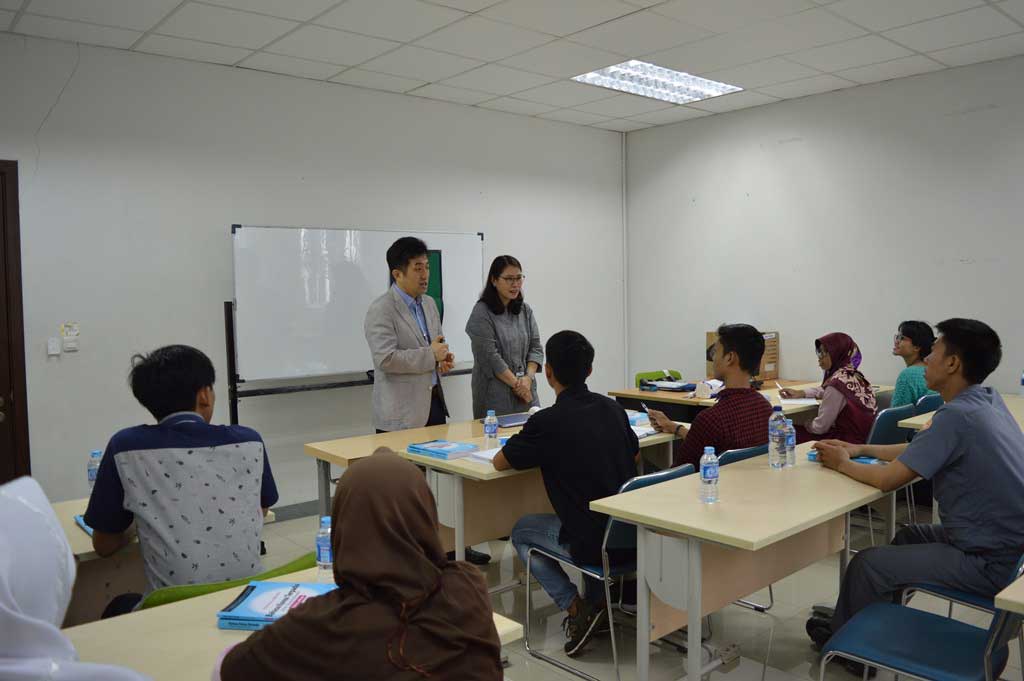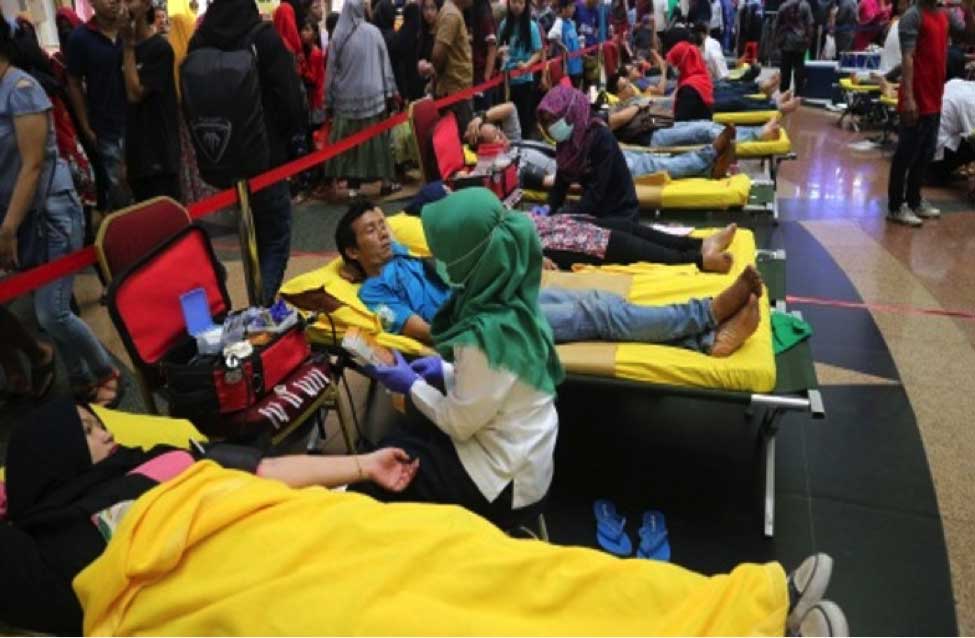 Nadia Yusuf meets a woman with a passion for public relations.
Nadia Yusuf meets a woman with a passion for public relations.
Indira Abidin has a dream of revolutionizing the public relations industry in Indonesia. As the managing director at Fortune Pramana Rancang (Fortune PR), an advertising and public relations company founded by her mother, Miranti Abidin, Indira wants to exceed expectations and continue to build her reputation as one of the leading figures in communications. She has worked in the industry since 2001, and this month marks a new achievement for her: Fortune Pramana PR will be a recipient of the Holmes Award in Hong Kong as “The Best Communications Company in Southeast Asia” for 2012.
“From here on there is no looking back,” she explains, as she tells the Jakarta Globe about her passions and career.
What made you decide to choose a career in public relations?
From a very young age, I helped my mother (the founder of Fortune PR) in small tasks. I followed suit in employee training, tutorials and I tried to participate and help out in everything. My parents taught me the value of working by setting me up as an intern at Tempo to do media monitoring and handle magazine clippings. All the experience gave me a feel and sense of what the communications industry would be like.
When I was attending University of Indonesia (for economics), I honestly never thought that I would jump into public relations.
I took cues from my dad who took charge of a company and observed how he managed to create jobs and develop his employees through vocational training. It was making an impact in people’s lives and this is what I wanted to do.
After working different jobs, they just didn’t feel right and nothing was really clicking. Then I tried to work with Fortune PR and everything felt like it was falling into place. I felt like I’d finally found my calling and this was it. I found my passion. It’s in my blood and it’s been there since the very beginning.
Do you have any favorite assignment or causes you have campaigned for during your career?
Fortune Indonesia as a group is very famous for our social marketing. Our chief executive, Pak Indra Abidin, was considered one of the pioneers in social marketing within Indonesia.
We handled “Lingkaran KB,” a family friendly campaign which was very successful and has won international recognition for Indonesia as a center for excellence in the family-planning campaign. It made Pak Suharto widely recognized as “Bapak Pembangunan” as the campaign progressed and succeeded.
Another one was “Aku Anak Sekolah” campaign starring Rano Karno. At the time, it was a financial crisis and people were, one by one, withdrawing their kids from school.
Instead of going to school, kids were urged to work. It happened in the 1980s and became a setback – the number of students declined exponentially. It stabilized after 10 years. This campaign was designated to avoid such things form happening (again) and it was a great success.
I learned I had an outlet to pour my aspirations into. We were able to prevent kids from out from school. I had a sense that we were building the quality of life for people.
It was then and there I decided, “this is the love of my life, this is my passion.”
I became drawn to campaigns that touched on social welfare and social marketing. Which is why last year we established a special business unit to serve social marketing relations. We have been working closely with a state-owned company – Bank BTN – on our “Savings Education” program to educate people in Central Java who don’t understand the importance of banking and saving money.
Any hardships?
There will always be hardships when we’re campaigning for social marketing. People in the smaller and more rural villages don’t read the news, some of them don’t even have television.
We couldn’t rely on the usual advertisement methods to get our message across. Everything needed to be done in the field and with a more hands-on approach.
We also constantly coordinated with local PKK (family welfare organization) offices to make sure that we were making the right moves, which isn’t always an easy task.
Do you think the public relations industry in Indonesia differs from the international stratosphere?
 Indonesia is now the next frontier of the world, Even the term “BRIC” (Brazil, Russia, India, and China) has been expanded to “BRICI” to include Indonesia. I was just informed by a friend who is a banker in Hong Kong that there is a new term called, “VIP” (Vietnam, Indonesia, Philipines). He was assigned to focus on these three particular countries because in fact, India and China has been a bit saturated. Indonesia is now the country that is currently being eyed by so many investors.
Indonesia is now the next frontier of the world, Even the term “BRIC” (Brazil, Russia, India, and China) has been expanded to “BRICI” to include Indonesia. I was just informed by a friend who is a banker in Hong Kong that there is a new term called, “VIP” (Vietnam, Indonesia, Philipines). He was assigned to focus on these three particular countries because in fact, India and China has been a bit saturated. Indonesia is now the country that is currently being eyed by so many investors.
But the PR industry itself in Indonesia right now is very young. Advertising is still the dominant tool being used in marketing. We are only gradually shifting to public relations. Slowly, companies are now reallocation their budgets to add PR into the equation. More marketers are aware of the importance of public relations and understand how to use PR to achieve their objectives and build their image.
What are your impressions on receiving the Holmes Award this year?
We are very honored to receive such a prestigious award. I think it should serve as inspirations for others in the public relations industry. If Fortune PR can do it, then everyone can. It also motivates our team to work harder and maintain this award, and that’s the most difficult part.
Some Indonesians tend to have such a pessimistic and negative outlook. What I hope to see is that this award can radiate some sense of positivity – Indonesians can do it.
Yes, Indonesia has its own problems but so do other countries. So don’t feel bad about being an Indonesian. This is how we should build our culture always look for a positive side, be thankful. A good attitude always helps.
Do you have any advice for aspiring candidates who want to go into the PR world?
Students have to start being active in student organizations because that will give them an insight on what it takes to do marketing, operations and leadership. I always pursue my HRD team to focus on students who are active in student organizations because they have the skill up front.









Leave a Reply